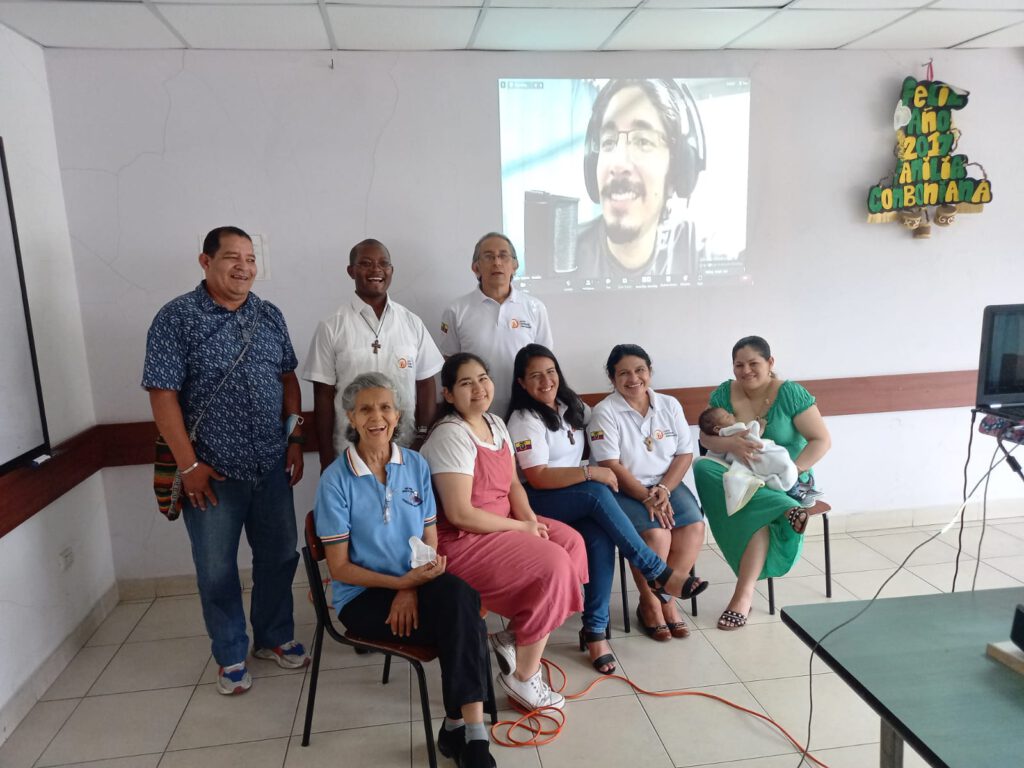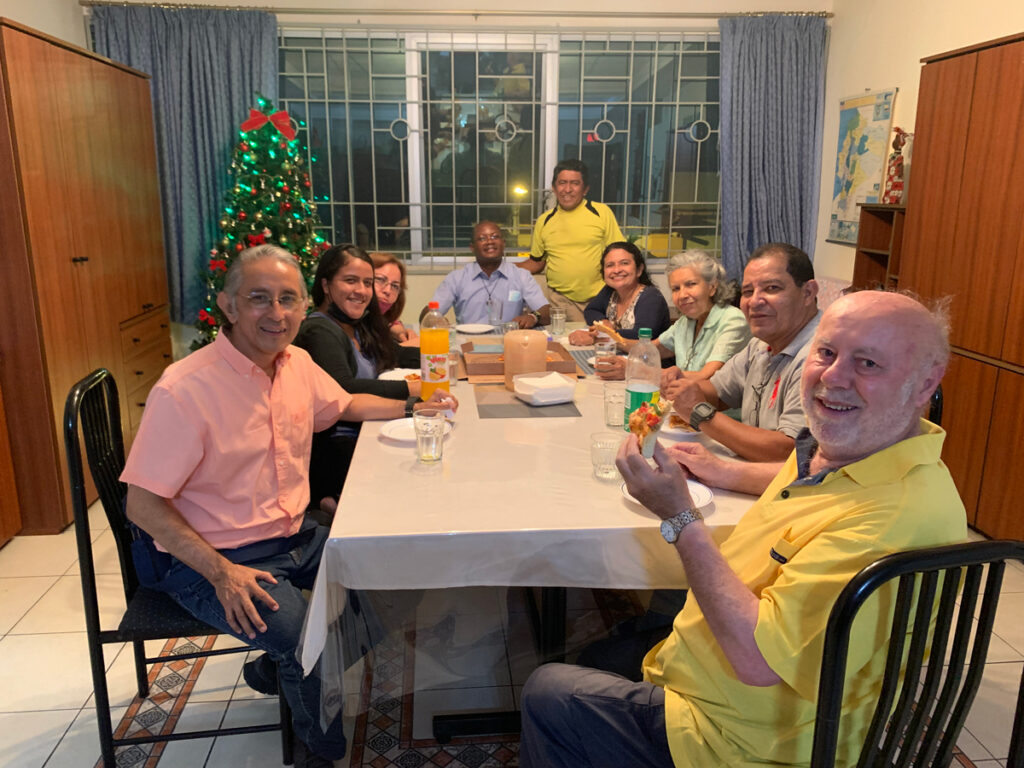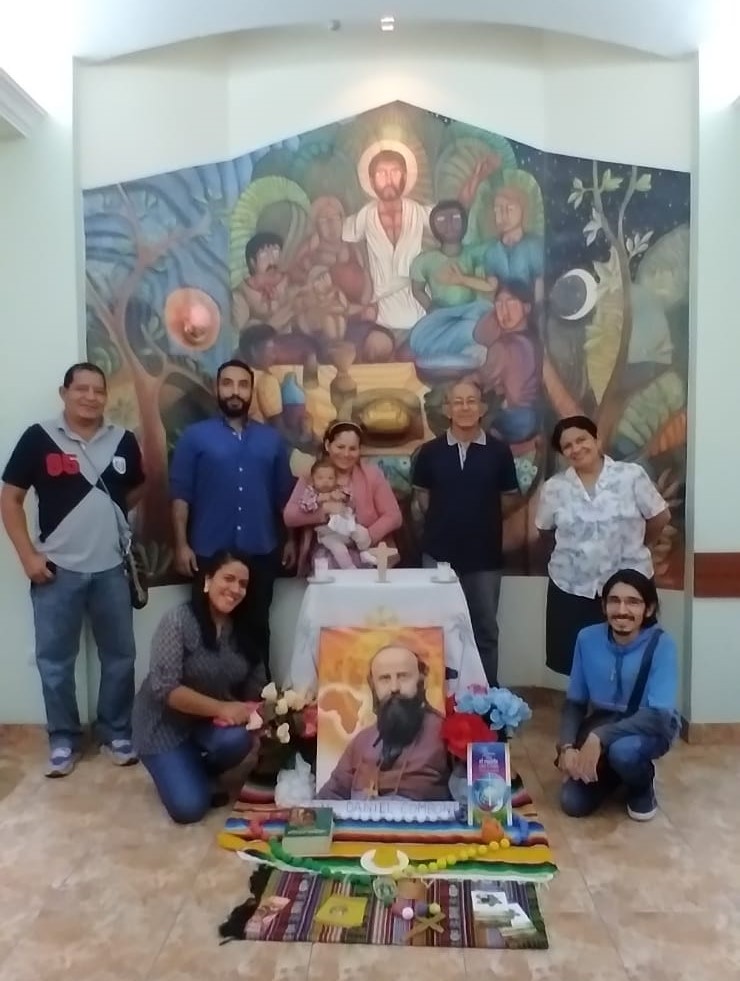
We pray that our Church may be ever more fraternal, so that all of us can participate in it and be co-responsible for announcing the Kingdom of God. Lord hear us.

We pray that our Church may be ever more fraternal, so that all of us can participate in it and be co-responsible for announcing the Kingdom of God. Lord hear us.

We pray for the Comboni Sisters who this year are celebrating the Jubilee of 150 years since their foundation, that they may continue being faithful witnesses of the Gospel in all the situations in which they are present, according to the particular Charism they received as a gift. Lord hear us..
This year 2021, brought many graces and gifts from Divine Providence to the Comboni Lay Missionaries in Ecuador. It is a reality that the pandemic in 2020, changed our life and the plans we had set took another direction and were put on hold; and among them the call for new lay people to increase our small community of Guayaquil.
In July 2021, we received in our community Fr. Joseph Ng’ang’a from Kenya, who became the local referent of the CLM in Ecuador and together with him and his teachings, we were able to make the call for new members, who would become CLM Candidates, a reality.

Thus, on August 17, 2021, a first call was made; and, it was in the mass of October 10, 2021, that after the celebration, we gathered the candidates and we presented them with the formation project for lay people based on five meetings, which is considered the “Stage of Knowledge and First Contacts” in our Statutes, in the same way the dates and place of meetings were presented to them.
The meetings went smoothly as scheduled, sometimes by zoom and others in person, so as not to lose continuity and to get to know our house of the Afro Ecuadorian Cultural Center. In addition, as CLM and to feel part of the Comboni Family in Guayaquil, it was agreed that the last Tuesday of the month we will have a mass and share as a family, in good time, some of the candidates were able to live this experience, along with the priests and brothers CLM.

Our last meeting was this Thursday, December 09, 2021, at 15h30, reviewing the last topic of formation of the Stage, leaving them the concern of their decision to belong to the CLM for next year. Joseph’s first anniversary of priesthood; for the upcoming Christmas and New Year’s Eve celebrations; and, the mission departure of John Villarroel and a candidate to our future national CLM mission site in San Lorenzo, Esmeraldas.

We thank the Sacred Heart of Jesus and St. Daniel Comboni for all the joys and experiences we have lived this year and for the future ones we will receive, with full knowledge that everything depends on our trust and detachment to the mission, either locally in Monte Sinai – Guayaquil; or, in the national one in San Lorenzo – Esmeraldas.
Abg. Susana Ortega Delgado, CLM